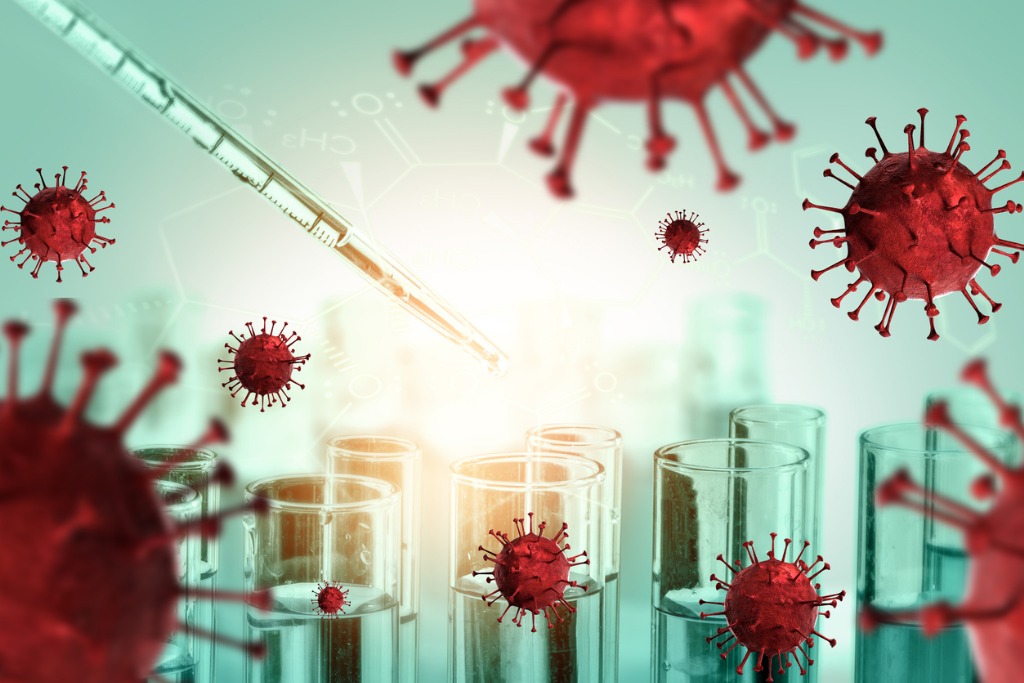Testing is conducted to diagnose, understand and help prevent the spread of SARS-CoV-2/novel coronavirus. We encourage people who test positive for the virus to quarantine and isolate themselves to prevent viral spread to others. This is particularly important with COVID-19, the diseased caused by SARS-CoV-2, because some infected people have no symptoms and may unknowingly infect others.
Follow our Educational Series on testing to stay abreast of the latest updates at Sutter. Part 2 of this series (below) describes antibody tests. In Part 1, we described SARS-CoV-2 testing with PCR.
Antibody/Serology Blood Tests for SARS-CoV-2
Overview:
Standard PCR-based tests can identify if someone is currently infected with the SARS-CoV-2 virus. Antibody tests (also called “serology tests” because they are conducted on blood samples) are used to determine if someone is producing antibodies to defend against the virus.
Antibody tests may help identify people who have been exposed to the virus even weeks after an initial infection, including people who did not show symptoms.
When infected by a virus like SARS-CoV-2, the body initially produces antibodies known as IgM (immunoglobulin-M), in efforts to neutralize or fight the virus, followed by the production of the IgG antibody, which more specifically targets the virus. As the body’s immune response accelerates, IgM levels decrease, while IgG persists for a longer period.
Antibody tests assess levels of antibodies produced in response to SARS-CoV-2 infection. The tests can help complement information from detection tests that use PCR.
In March 2020, the U.S. Food and Drug Administration (FDA) issued guidelines allowing manufacturers of antibody tests to market their products without prior FDA review, under certain conditions.
The FDA also authorized several antibody tests under an Emergency Use Authorization (EUA), which means the FDA has reviewed and authorized use of the tests, but has not performed the same type of robust review typically done for the FDA-approved tests used in clinical laboratories.
Antibody tests may help provide clues about who has developed antibodies, how long antibodies last, and what levels of antibodies may be protective from subsequent SARS-CoV-2 infections. It is not yet known whether antibody test results predict immunity to SARS-CoV-2 or how long antibodies last.
Until more information is known, it is important to continue following recommendations for protecting ourselves and each other from SARS-CoV-2, even if antibodies have been detected in an individual. As of April 30, 2020 there is no test approved by the FDA that confirms immunity to the disease.
Medical and research experts are working to determine whether antibodies indicate immunity, and this may take at least six months to ascertain. With this information, Sutter and other healthcare organizations will be better equipped to understand if patients within our communities are at reduced risk of subsequent SARS-CoV-2 infection after previously testing positive for the virus.
This information will help guide decisions around the removal of “shelter in place” directives from county and state government and help determine plans for back to work/school initiatives.
Antibody/Serology Testing at Sutter:
This month we’re also beginning to make available serological tests—or antibody tests. While these tests help detect the presence of antibodies produced in response to the COVID-19 infection, there’s no strong scientific evidence that these antibodies mean a patient is immune to the coronavirus.
Sutter will limit use of antibody testing to highly selective groups and circumstances. For example, the antibody tests will be used to help validate a positive COVID-19 diagnosis with a patient who had previously tested negative but is still suspected to have the virus.
Antibody tests will also be used to determine whether a patient convalescing from a known COVID-19 infection, who is interested in becoming a plasma donor, meets criteria for convalescent plasma donation that could benefit other patients receiving acute care for COVID-19 related disease.
We have sourced cutting-edge serology tests that can quickly and accurately detect hallmarks of the SARS-CoV-2 virus, namely IgG and IgM antibodies. The tests have “high specificity” (>99%).
The specificity of a test refers to how well a test identifies people who do not have a disease. These tests also have “high sensitivity” (>98%); the sensitivity of a test refers to how well a test identifies patients who have the disease. Sensitivity is high when patients are tested >15 days after symptoms of COVID-19 begin. A highly sensitive and specific test can help identify people who have been infected by SARS-CoV-2 virus.
Key takeaways:
- SARS-CoV-2 serological tests, or antibody tests, are blood tests that are used to detect the presence of antibodies produced by the immune system in response to COVID-19 infection.
- Information from studies of antibody testing can help understand the spread of the disease and infection rates. However, Sutter does not recommend the use of serology/antibody tests alone for diagnosing or treating people with current COVID-19 infections.
- There is no evidence yet (as of May 2020) that people with detectable antibodies are immune to re-infection with COVID-19.
- Until more evidence is available, antibody tests should not be used to make decisions related to easing social distancing or the use of personal protective equipment (PPE).
- Per guidelines from the Infectious Diseases Society of America (IDSA), serology test results also should not influence decisions regarding return to work until the relationship between antibody presence and immunity is understood.
- As of May 2020 and according to U.S. federal and California state laws, SARS-CoV-2 antibody tests can only be performed at licensed clinical laboratories.





